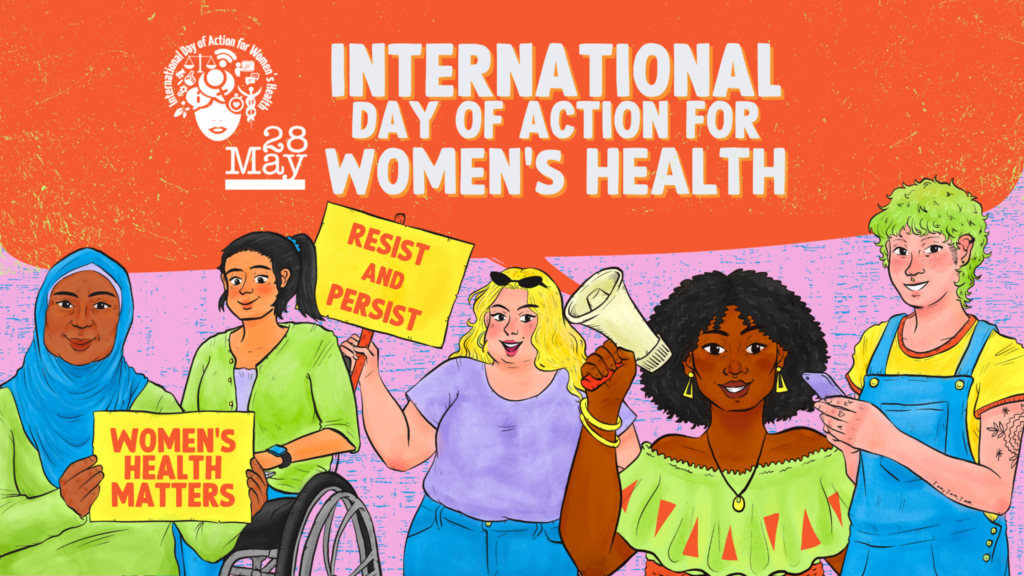In 1987, May 28 was chosen as the day dedicated to raising awareness about women’s right to Health. The 2022 theme for the International Day of Action for Women’s Health is #ResistAndPersist amid crises and global uncertainty.
Recognising Women’s Health
When thinking about Women’s Health many people typically think about the care of women in relation to childbirth, both antenatally and postnatally, including the teaching of antenatal classes, the treatment of incontinence, and the care of women undergoing gynaecological surgery.
“Communities and countries and ultimately the world are only as strong as the health of their women.” – Michelle Obama, Attorney and Author and previous first lady of the United States
Over the years the field has grown and now includes all health concerns of women, such as: pelvic/vaginal and musculoskeletal pain, rehabilitation following breast surgery, gender-based violence, and access to essential sexual and reproductive health services.
Removing Barriers
In light of a world in recovery from the COVID-19 pandemic, there is a need for accountability in standing up for women’s rights in the context not just of the gendered impacts of the pandemic, but related to the multiple crises being faced from an economic, political, humanitarian, climate and disinformation perspective on a global scale.
Around the world access to health services is affected by gender norms and roles. The USAID-funded ReLAB-HS project was set up to address global inequalities in health systems and a recent scoping review conducted by the Gender & Social Inclusion (GESI) Working Group of ReLAB-HS explored access to rehabilitation for women, girls, men, boys and gender minorities. The review found that although there is an unmet need in all of these groups it is even greater for women and girls.
There are many possibilities for removing barriers for women and ensuring that GESI has a place high up on the agenda for global health systems, and the ReLAB-HS project is committed to ensuring the gender gap in accessing services is addressed.
How Can Physiotherapy Help?
As well as providing care and rehabilitation physiotherapists can act as advocates and educators in the care of women’s physical and mental health.
“Women’s health needs to be front and center – it often isn’t, but it needs to be.” – Cynthia Nixon, Actress, activist and theatre director
All females across the life span, from the young athlete, the childbearing woman, the menopausal and elderly woman receive benefit from physiotherapy. It is also important to remember the needs of women in conflict-affected states as well as the rehabilitation needs of displaced persons.
As a resource focused on improving healthcare through knowledge sharing, Physiopedia strives to ensure that our content reflects the growing needs of women and you can read more in our categories on Women’s Health, Refugees and Rehabilitation in Disaster and Conflict Situations.
What Can You Do?
Women, girls, advocates, and supporters have continued to take action and lobby for women’s health including sexual and reproductive freedoms as an essential and fundamental right. But you do not have to lobby to make a difference.
Raising awareness of women’s health and well-being is not just an issue for women. Everyone should take a stand and get involved in the importance of all aspects relating to women’s physical and mental health.
Become an expert on women’s health and share your knowledge – read all about the physical and mental conditions that can undermine women’s health and overall well-being on Physiopedia!
Get confident with Women’s Health Physiotherapy – Learn with Physioplus
As well as expanding your own knowledge why not stand up and share a post on Social Media? Here are some hashtags you can use: #WomensHealthMatters #SRHRisEssential #ResistAndPersist
Interesting related links:
This work is supported by the USAID funded Learning Acting Building for Rehabilitation in Health Systems (ReLAB-HS) project and is not possible without the generous and committed contribution of the Leahy War Victims fund.
ReLAB-HS is made possible by the generous support of the American people through the United States Agency for International Development (USAID) and is implemented under cooperative agreement number 7200AA20CA00033. The consortium is managed by prime recipient, Johns Hopkins Bloomberg School of Public Health.


